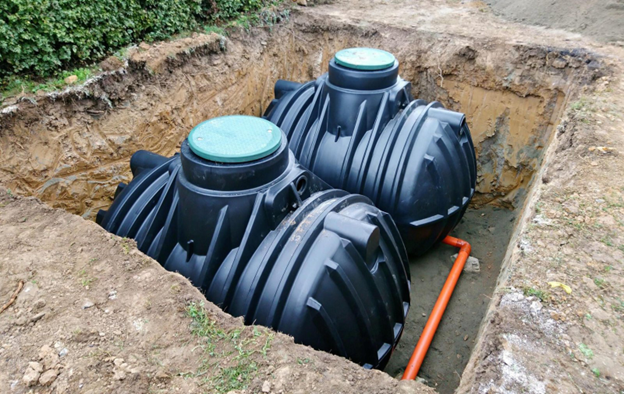Our daily chores require water. As they say, water is life. High demand for safe domestic and commercial water has led to the popularity of underground tanks. Are you wondering about the benefits of underground water tank storage? Worry not. This article highlights the benefits of utilising underground water tank storage systems. Follow it to the end, and you will never go wrong.
1. Space optimisation
One primary advantage of underground water tanks is space optimisation. They are applicable in urban areas where land is at a premium. Installing tanks below the surface allows for efficient utilisation of available space. This discreet placement minimises visual impact while maximising storage capacity. Other structures can be constructed above the underground tank or the space utilised for different purposes.
2. Aesthetic appeal
Nothing pleases more than an appealing compound. Above-the-ground tanks are eyesores in residential and commercial areas. Underground tanks are hidden from view, making an appealing compound. This aesthetic appeal is particularly advantageous for those wishing to maintain visual harmony in their surroundings without compromising water storage capacity. No physical barriers that interfere with our daily activities are constructed.
3. Preservation of water quality
Underground tanks are not exposed to sunlight. The absence of the sun in underground water tanks inhibits algae growth and other light-dependent microorganisms. These organisms are known to pollute and lower water quality. Their absence makes water safe and secure for drinking and other purposes. Ensure your water is always safe for healthy living.
4. Temperature regulation
Surrounding soil provides natural insulation to the underground water tanks. It is beneficial as it helps regulate temperature, preventing extreme fluctuations of stored water. Underground water insulation is necessary for safe storage. Underground water tanks are less susceptible to temperature-induced issues such as algae growth and water freezing during winter due to insulation.
5. Protection from environmental factors
Environmental factors affect water tanks. Water tanks above the ground are exposed to harsh weather conditions and UV radiation. On the other hand, soil shields underground water tanks from environmental factors. This protection is necessary as it extends the tank’s lifespan and ensures the stored water’s quality remains uncompromised.
6. Reduced evaporation losses
Evaporation is a significant concern in regions with high temperatures. Evaporation leads to water loss. Underground water tanks experience significantly lower evaporation losses than above-ground counterparts, as the soil cover is a barrier.
7. Safety and security
The discreet nature of underground water tanks contributes to enhanced safety and security. These tanks are covered below the soil surface, making it hard to interfere physically. Covering the underground tank reduces the risk of contamination and ensures a reliable and secure water supply. Water safety and security should be a priority for everyone.
Conclusion
There are numerous benefits of using underground water tanks, as discussed previously. Consider incorporating underground water tanks into your plans to reap the many advantages outlined above and enhance your water supply. Demand for secure water sources in residential and commercial areas has been increasing recently, leading to the widespread adoption of underground tanks. This trend is apparent in urban areas worldwide, where the merits of these tanks are being widely discussed. With their ability to promote water security, improve quality, and reduce loss, underground water tanks offer a sustainable and reliable water source. Embracing innovative solutions such as underground water tanks is crucial. Give it a try and see the difference for yourself.




